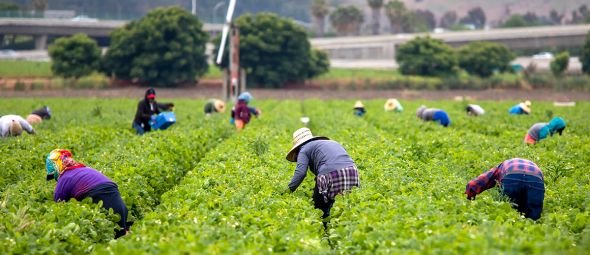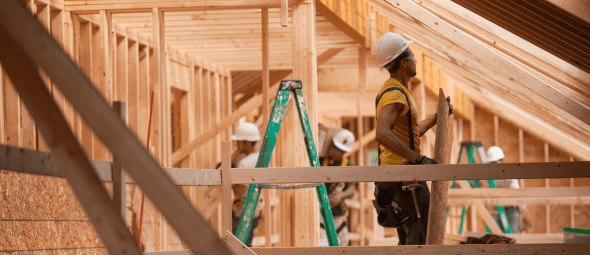Overview
Immigrant workers significantly contribute to the US economy but are often concentrated in low-wage jobs and face legal and accreditation barriers to fully utilizing their skills and education. Data and research on immigrant workers can inform efforts to strengthen overall US labor conditions, help expand access to employment opportunities for these workers, and improve alignment between the workforce needs of the US economy and immigrants’ skillsets. Equally important is understanding employers’ key role in creating inclusive workplaces that maximize immigrant workers’ potential within the US labor market.
Featured Content

Worker voice, representation, and power, Immigrant workers, Sectoral bargaining
December 12, 2023
Video
WorkRise Shorts: Economic Security for Low-Wage Immigrant Manicurists with Lisa Fu
California Healthy Nail Salon Collaborative executive director Lisa Fu discusses her WorkRise-funded research that examines two specific approaches to elevate the industry—high-road training partnerships and sectoral bargaining—and offers insight into how unions, community partners, workers, and owners can use these strategies to move forward.
December 12, 2023

Employer practices, Immigrant workers
August 16, 2023
Research Summary
Agricultural Worker Shortage to Worsen without Wage Increases
Research finds that workers from Mexico are leaving farm work and are less inclined to participate in US agricultural work unless inflation-adjusted wages rise significantly, which in turn creates incentives for US farm employers to increase wages while seeking labor-saving technological solutions.
August 16, 2023

Worker voice, representation, and power, Immigrant workers, Care work
March 03, 2021
Changemaker Q&A
Supporting a Workforce That Makes All Other Work Possible: A Q&A with Palak Shah
National Domestic Workers Alliance's social innovation director shares key insights on the domestic care workforce and the solutions we need to support them.
March 03, 2021
Latest Content

Economic context, Immigrant workers
Last updated on February 24, 2025
Article
Mass Deportations Would Worsen Our Housing Crisis
Mass deportations would reduce the construction labor force, which is highly dependent on immigrant workers, exacerbating the US housing crisis—but some states are more at risk than others.
Last updated on February 24, 2025
Employer practices, Immigrant workers, Economic development
Report
Last updated on October 25, 2024
The Minneapolis Small Business High-Road Labor Standards Intervention Pilot Project
The Minneapolis Small Business High-Road Labor Standards Intervention Pilot Project seeks to provide services that support immigrant, black, indigenous, and people of color owned small businesses so that they can create healthy, just, and equitable jobs through meeting and or exceeding minimum city labor standards.
Grantee Research
Employer practices, Immigrant workers, Young workers, Energy transition, Workers in the South
Brief
Last updated on September 19, 2024
Extreme Heat at Work
This research brief offers the first nationally representative estimates of how outdoor and indoor workers are affected by extreme heat, highlighting that low-wage workers, defined as adults earning less than $15 an hour, face greater risks than higher-wage earners.
WorkRise Research
Social determinants of work, Immigrant workers
Last updated on April 16, 2024
Curated Research
Bridging the Gap for New Americans
This US Department of Labor study examines New Americans with foreign credentials in the US workforce from 2017 to 2022, finding they are often underemployed despite their qualifications and highlighting opportunities for better integration to boost the economy.
Last updated on April 16, 2024
Social determinants of work, Immigrant workers
Last updated on March 01, 2024
Curated Research
Examining Afghan Evacuees’ Resettlement: Insights and Lessons for Future Humanitarian Populations
This Urban Institute report draws on interviews with Afghan refugees and community stakeholders in Chicago, San Antonio, and northern Virginia to document the effects of humanitarian parole—two-year authorizations to enter and work in the United States without a pathway to permanent residency—on topics such as employment, housing, family separation, and physical and mental health.
Last updated on March 01, 2024